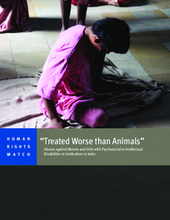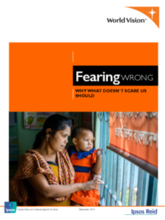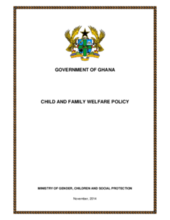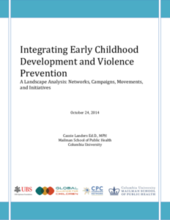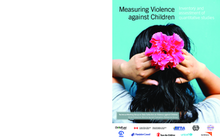Displaying 781 - 790 of 1070
This report documents the involuntary admission and arbitrary detention of women and girls with mental health disabilities in mental hospitals and residential care institutions across India.
This report, from Ipsos Reid and World Vision, presents the findings from a study on perceptions and public opinion on violence against children around the world.
This paper reports the results of an international review of academic literature on sexual abuse in residential child and youth care, 1945–2011.
The Government of Ghana has established a relatively comprehensive legal framework for child protection, guided by the Constitution and the Children’s Act 1998 (Act 560).
This Strategic Paper, from the Igarapé Institute, reviews emerging capabilities of information and communication technologies (ICTs) to prevent violence against children in the Global South.
This video documents how a child protection model from Malawi works as part of the Integrated (HIV Effect) Mitigation and Positive Action for Community Transformation (IMPACT) program.
This review aims at gaining a better understanding of the landscape of, and support efforts by, the Early Childhood Development and Violence Prevention communities through identifying networks, campaigns, movements, and initiatives
This report presents the findings from the Child Protection Monitoring and Evaluation Reference Group’s review of data-collection activities in primarily low and middle-income countries.
This animated video, made by Dr. Mike Evans, founder of the Health Design Lab at the Li Ka Shing Knowledge Institute, illustrates the impacts of trauma and negative experiences on young children’s brain development and the ways in which healthy cognitive development can be promoted.
In this TED talk, pediatrician Nadine Burke Harris explains how childhood trauma--such as abuse, neglect and parents struggling with mental health or substance abuse--has real, tangible effects on the development of the child's brain. Children who have experienced high levels of trauma and adverse childhood experiences are at triple the risk for heart disease and lung cancer. This is because of the body's stress response system, which is activated repeatedly during childhood by the adversity.

